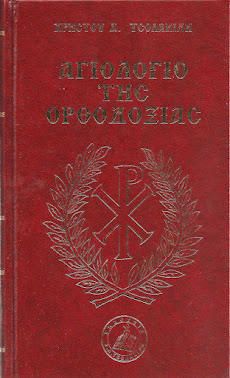Αναζήτηση αυτού του ιστολογίου
Πέμπτη 6 Σεπτεμβρίου 2018
The Need to Mourn
The Need to
Mourn
Our humanity
binds us together when we suffer sorrow and loss
One of the
most tremendously rewarding and challenging aspects of the priesthood is
comforting people in their darkest moments of sorrow. Do not be mistaken, and
think that priests, monks and chaplains are exempt from the pain of those whom
they try to comfort, or that we have magical words that somehow ease the pain
or bring order to the chaos of grief. Platitudes are useless in dark days of
mourning. They may very well be “in a better place,” but it is oddly of little
comfort to say those words. In a powerful witness of human behavior, Christ
does not say, Well, now he is in heaven, everything is well; he is separated from
this difficult and tormented life. Christ does not say all those things we do
in our pathetic and uncomforting attempts to console. In fact he says
nothing—he weeps.”
In like
fashion, we need to embrace the grief that we feel at the loss of people in our
lives. We need to honor the bereavement process, because just as God gave to us
wonderful years with friends and relatives, sons and daughters, spouses and
parents, so too God has blessed us with the grief that we feel at their
leaving. Grief is confirmation they were persons of value, a beloved son, a
cherished brother, a treasured friend, a sweet parent. Grief is how we honor a
well-lived life. Their death is grief-worthy. In grieving, we do their memory
justice, and follow in the example of Jesus, who wept at the grave of his
friend Lazarus. Like martyrs of the ancient church, like Lazarus in the New
Testament, their departure from this world is what makes their death
particularly galling for those of us left behind to wonder how we are going to
the fill the space that they once occupied. The mystery of a future without
them is daunting, in the immediacy of their death, as the mystery of death
itself.
As a priest
and monk of the Orthodox Church, I am comfortable with this mystery, as all
Christians should be. Death can be a mystery precisely because the triumph over
death is not a mystery. As the Orthodox theologian Alexander Schmemann wrote,
“in essence, Christianity is not concerned with coming to terms with death, but
rather with the victory over it.” In the light of everlasting life, in the name
of Jesus Christ, the dreadful threat and dark mystery that is death is
transformed into a happy and victorious event for the believer, and “Death is
swallowed up in victory.” (1 Cor. 15:54)
So mourning
is an ancient ritual, one in which Jesus participated. For all of us, all
people, death is a common element of humanity, the common trait that we share,
and the common enemy of our loved ones. And like grief, victory over death
binds people together in a larger, more powerful community, the community that
is found in the Christian faith. People accuse Christians of being members of a
“death cult,” obsessed with a dying savior and focused on the afterlife to the
exclusion of the present; but they are wrong. Christianity does not deny life,
Christianity affirms life. Christianity affirms life even in death, because for
Christians, death does not remove the relationship that exists. In death, as in
life, the deceased is our son, the deceased is our brother, the deceased is our
friend. In death, as in life, we love and honor them, and death cannot separate
them from us. Death may have taken them, but it has also provided us with the
opportunity to live with the hope of one day joining them. And a life with hope
is a good life.
So for us,
their death is the beginning of the true life that also awaits us beyond the
grave, if indeed we have begun to live it here. Christ, “the resurrection and
the life,” (John 11:25) transformed death. Christ assumed human flesh, Christ
was crucified, resurrected, ascended to heaven and waits for us there, and
Christ ushers us into new life both now and after our death. Therefore, even as
death exposes our frailty and our grief, death does not reveal our finiteness;
instead it reveals our infiniteness, our eternity. To this end, the Christian
does not ponder the mystery of death in a way that is paralyzing, negative and
apathetic, but in a way that is productive, positive and dynamic.
God, to whom
we have entrusted our soul, is a good and perfect God. This God will do what is
right with our child, what is just with our brother, and what is honorable with
our friend. There is no saying, no claim, no scripture that will give us peace
in our loss right now or even calm our troubled souls; but we can find comfort
and peace in God who is present with us, and in us and through us as we gather
in the intimacy of grief, to mourn the death of our loved one.
With love in
Christ,
Abbot Tryphon
Εγγραφή σε:
Σχόλια ανάρτησης (Atom)










Δεν υπάρχουν σχόλια:
Δημοσίευση σχολίου